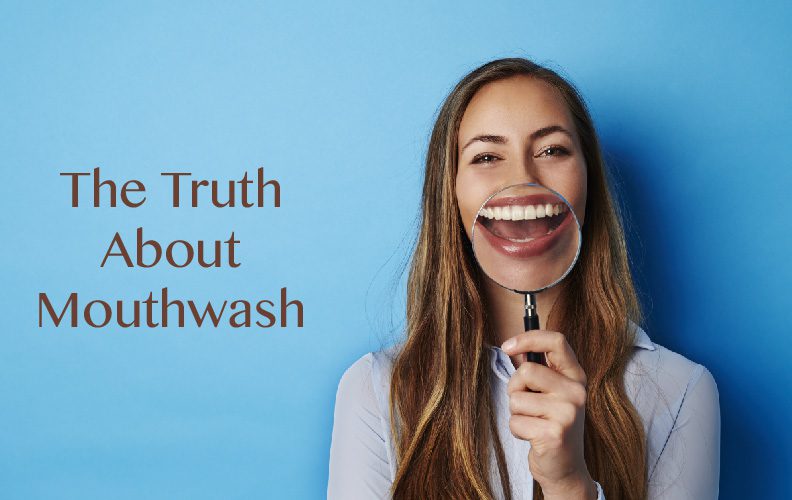
Last year, a Dollar Express in Minneapolis stopped selling mouthwash to intoxicated customers. Additionally, the staff carded anyone who looked under 30 years old when they attempted to buy mouthwash. When did Dollar Express employees become bartenders, and what’s the big deal about mouthwash?
Some brands of mouthwash contain a surprisingly high level of alcohol, so high that they surpass beer and wine. This is one of the reasons why the Dollar Express in Minneapolis had to ban people abusing alcohol or teenagers from buying mouthwash. It was much cheaper and easier to buy than regular alcohol, especially for those who were underage.
So, what does all of this alcohol do to your mouth, and is mouthwash even good for you?
Effects of Mouthwash Alcohol on Your Mouth
While mouthwash may be a staple in your dental hygiene routine, too much can be detrimental to your oral health. In fact, it may even make it worse. According to Dr. Philip Stemmer, a British dental professional, using mouthwash with high alcohol too frequently may even lead to bad breath. He said, “Alcohol could dry out the mouth and, in fact, make bad breath worse. By drawing moisture from the tissues and slowing down the production of saliva, alcohol-containing mouthwashes leave limited fluid to flush away germs, meaning bacteria can multiply. It is a build-up of bacteria that can cause bad breath.”
Not All Mouthwashes Are Equal
You won’t find alcohol in all mouthwashes. In fact, many are actually water-based. These water-based mouthwashes will freshen your breath just as well as an alcohol-based one. Dr. Keith Cohen explains that while mouthwashes can help spruce up your breath a bit, it’s really all about flossing and brushing. “A mouthwash may provide temporary improvement in the scent of your breath, but good dental hygiene with regular brushing and flossing is the only way to tackle it.”
In fact, persistent bad breath – clinically known as halitosis – may actually have nothing to do with your dental hygiene, but rather an underlying disease. Bad breath can develop because of anything from diabetes to chronic acid reflux, bronchitis, or even liver and kidney problems. Dry mouth can also be a cause of bad breath. So don’t give up on your mouthwash just yet. It’s important to make an appointment if you are experiencing persistent bad breath even with a regular, thorough oral care routine that includes daily flossing, brushing, and a balanced diet and healthy lifestyle.
Using Natural or Sugar-Free Mouth Rinses
If you want to avoid alcohol altogether, opt for a natural mouthwash. There are many more on the market these days than ever before. According to Dr. Jonathon Levine, DMD, there’s another ingredient in alcohol-based mouthwashes that you should avoid. “Some mouthwashes also contain phenols, which are a type of alcohol and have widely been considered toxic due to their susceptibility of being absorbed by lungs and skin, potentially resulting in caustic burns, kidney and liver damage, and hyperactivity. When choosing a mouthwash, avoid anything containing this ingredient.”
If you’d like some suggestions about what type of mouthwash is right for you, contact our office today! At Williamsville Family Dentistry, we’re here to help you achieve a bright, fresh, and healthy smile.
